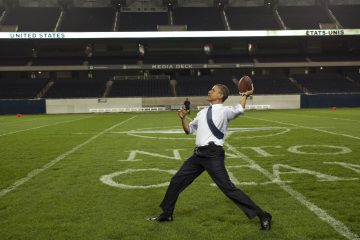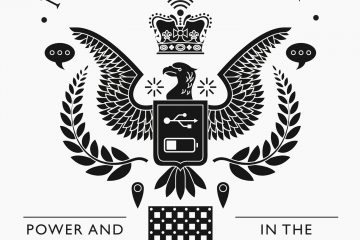
OxPol Blogcast. Politics, Re-Imagined — Media, Identity and Misinformation with Rasmus Kleis Nielsen
How can media organisations reach those who feel the news is not for them? And is our current age of fake news fundamentally different from the past? Tune in as our host Cassandra van Douveren speaks to Dr. Rasmus Kleis Nielsen, the Director of the Reuters Institute for the Study of Journalism and a Professor of Political Communication at the University of Oxford to discuss these questions. Rasmus’ work focusses on the changing role of the news and media in our societies. His recent book, Avoiding the News: Reluctant Audiences for Journalism (2023), written with Benjamin Toff and Ruth Palmer, explores why particular audiences are reluctant to follow the news and how this can be addressed. He has also written …
Protests in an Age of Globalization: Performance, People Power, and Pathos
Protest in an age of globalization relies on performance. From Hong Kong to La Paz and Santiago to Khartoum, global attention is increasingly captured by mass movements of people, demonstrating strength in numbers against prevailing political and economic systems. Modern protests, however, only work some of the time. Drawing on current events, scholars might consider a protest’s success hinging upon which audience they choose to target and the power of that audience to act. We see differences, for example, between Hong Kong — where protesters engaged the global community with limited effect thus far on Beijing — and protests in Sudan earlier this year — which targeted an old, autocratic leader’s military cadre, but did in fact precipitate a military coup. Has globalization changed protesting? Today’s global stage is nothing new — consider the nationalist movements …

Why more needs to be done to defend internet access
On November 17th, 2019, Iran cut out access to the internet. This meant that the Iranian government could repress protests over increased gas prices without making much news. Reportedly, 180 people were killed in the process, yet people were mostly unable to share information about the repressive acts of the government. This is only one recent case of hundreds of governmental internet blackouts that have been performed in 2019. At present, countries are facing very little consequences for shutting down their citizens’ access to the internet. In a world where the internet is playing an increasingly important role both in daily life and political contestation, very little is being done to safeguard access to the internet. What is needed is a serious shift in …

Primaries as Sports and Spectacle: Sports Metaphors in Twenty-First Century Presidential Primary Debates
‘The Brawl Begins’, an article about the 2016 primaries in The Economist provides the most overt manifestation of how a discourse of sports has permeated contemporary political reporting. Describing elections as a “jaw-dropping spectacle” or referring to the Iowa caucuses as the “opening round” in a political boxing match, a prime example of horse-race journalism, is particularly prevalent in presidential primary elections. This is due to the lengthening of the primary period and the truism that the “newsworthiness of what a candidate says about public policies is limited” because “once a candidate makes known his position on an issue, further statements concerning that issue decline in news value”.[1] In these elections, televised debates – which Craig Allen Smith compares to the Super Bowl, …

Communication in the 21st Century: A conversation with Tom Fletcher, author of Naked Diplomacy [Part II]
Dr Tristen Naylor, Oxford’s Lecturer in Diplomatic Studies, chatted with Tom Fletcher, the former British Ambassador and Downing Street foreign policy advisor, about his new book, Naked Diplomacy. In this three-part series their discussion explores everything from diplomacy in the digital era to the divide between academics and policy makers — with a nod to the intertextuality of W.H. Auden and Black Sabbath along the way. For Part I, see here. TF: In diplomacy, like any other trade, there are people who simplify and people who complicate. I tend to side with the simplifiers. TN: I can easily see that. Just taking the very start of your book as an example, you begin with W.H. Auden’s ‘The Embassy’, which so elegantly and simply …

Digital Rights and Pornography – A child protection catch-22 or lazy policy solutions?
Our rights are being infringed more and more on every side, and the danger is that we get used to it. So I want to use the 25th anniversary for us all to do that, to take the web back into our own hands and define the web we want for the next 25 years…. “But we need our lawyers and our politicians to understand programming, to understand what can be done with a computer.[1] – Sir Tim Berners-Lee The above quote should come as no surprise to anyone with even a passing interest in digital rights. In recent times there has been growing interest by governments in how to respond to the sort of modern social problems that …

Pornography and digital rights
One of the Internet’s most awe-inducing features is its ability to serve up whatever piece of content you need, whenever you need it. Whether you’re looking for videos of cats riding Roombas, the translated poetry of Goethe or the song of a nightingale, the Internet, thanks to the incredible resources of the World Wide Web, will dish up whatever you’re after. Of course, insofar as online content mirrors our offline imperfections, it’s equally easy to find less salubrious material. As with many other technologies before it, the Internet has provided a new platform for pornographic content, and whatever your sexual predilections, you will find an ample store of online content to meet every desire. Unsurprisingly, this leads to no small …

Democracy for our Digital Future (Part III): The public realm, parties and the future of campaigning
The gathering heard from the historian David Marquand whose latest book Mammon’s Kingdom explores the history and values of the public realm and its relationship to democracy. The public realm is an elusive term, noted Marquand, which denotes a sphere of human life that is not the market, but not the private realm of family and friendship either. It is the belief that we are mutually inter-dependent, with perhaps the best definition given by John Donne when he noted that ‘No man is an island, entire of himself’. The public realm includes the public sector, but is not reducible to it. It is also the realm of our rights and responsibilities, which includes universal human rights, but also certain British …









